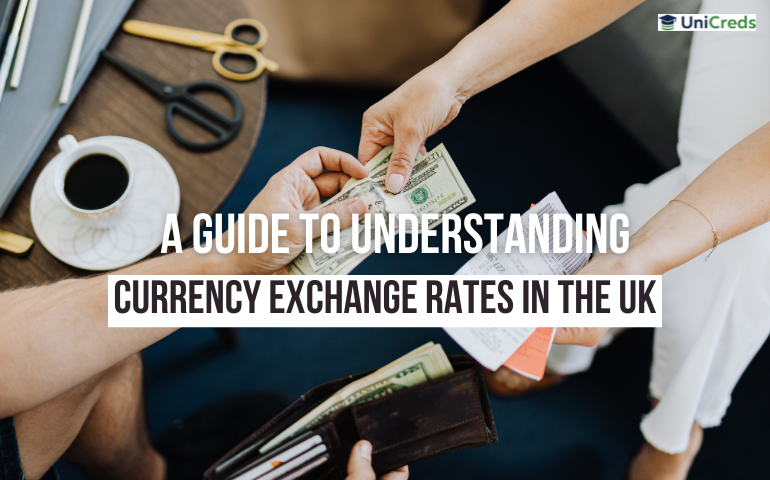Table of Contents
The excitement of studying abroad comes with many questions. One important question is understanding the difference between a credit card and a debit card. These cards may look similar, but they work very differently overseas. Using the wrong card can lead to blocked accounts or unexpected charges. You will rely on these cards every day for food, travel, and bills. Knowing which card to use and when will save you a lot of stress.
It is not just about managing money but about peace of mind in a new country. Imagine being stuck without funds because your card was declined or facing fees you did not expect. This blog gives clear facts every student must know before boarding their flight.
Difference Between a Debit Card and a Credit Card
Heading abroad means handling money smartly is a must. You’ll probably carry both a credit card and a debit card, but do you really know how they differ? Understanding the difference between credit card and debit card is key to avoiding blocked cards, surprise fees, or overspending in a foreign country.
Here’s a quick look at what sets these cards apart, so you’re ready before you leave home.
| Feature | Debit Card | Credit Card |
| Source of Money | Uses your own funds from your bank account | Borrowed money from your bank or credit issuer |
| Getting One | Simple with a bank account | Requires income proof and credit checks |
| Interest Charges | No interest charged | Interest applies if balance isn’t fully paid |
| Spending Limit | Limited to the money in your account | Set by your bank, can be higher than your balance |
| Fees Abroad | May have small ATM withdrawal fees | Usually higher fees and cash advances cost more |
| Credit Score Impact | Doesn’t affect your credit score | Can build or damage your credit score |
| Rewards & Perks | Rarely offers rewards | Often comes with cashback, points, or discounts |
| Security | Protected by PIN and alerts, but limited liability | Stronger fraud protection and zero liability options |
| Best Use | Everyday spending and ATM cash | Emergencies, large purchases, building credit |
What is a Credit Card?
A credit card lets you borrow money from a bank or financial company up to a set limit. Unlike a debit card that uses money from your own account right away, a credit card gives you time to pay back what you spend. You get a monthly bill and can clear the amount without interest if you pay on time. Using a credit card wisely can help you build your credit score, which matters when applying for loans or renting abroad. Knowing this is a smart move as you prepare for life overseas.
Key Features of a Credit Card
- Borrowed Funds with a Credit Limit
You get a set amount of money to spend, called your credit limit. This limit depends on your income and credit history.
- Grace Period Without Interest
If you pay your balance in full each month before the due date, you avoid paying interest on purchases.
- Builds Your Credit Score
Timely payments and responsible use help improve your credit rating, which banks check for future loans or rentals.
- Rewards and Cashback Offers
Many credit cards offer benefits like cashback, travel points, or discounts on shopping and dining, which can add up.
- Stronger Fraud Protection
Credit cards usually come with better security measures and zero liability policies to protect you from fraud.
Pros and Cons of a Credit Card
| Pros | Cons |
| Access to a line of credit | Risk of overspending if limits aren’t managed well |
| Rewards and cashback offers | Annual fees may apply depending on the card |
| Travel perks like insurance and discounts | High interest rates on unpaid balances |
| Strong protection against fraud | Late payment charges can add up quickly |
| Backup fund in emergencies | Missed payments hurt your credit score |
What is a Debit Card?
A debit card is a payment tool linked directly to your bank account. When you buy something with it, the money leaves your account immediately. This means you can only spend what you have, no borrowing involved. For students abroad, it helps keep your spending in check and avoids surprises from interest fees.
The key difference between credit card and debit card is that debit cards don’t offer credit and don’t charge interest. They’re simple, straightforward, and great if you want to stick to a budget.
Key Features of a Debit Card
- Linked to Your Bank Account
Every purchase pulls money straight from your savings or checking account. No borrowing, no debt.
- No Interest Charges
Since you’re using your own money, you won’t face any interest fees or hidden costs.
- Limited Fraud Protection
Debit cards have some security measures, but they usually don’t offer the strong fraud coverage credit cards provide.
- Use for Cash and Payments
You can withdraw cash from ATMs, shop online, or pay at stores using your debit card.
- No Credit Score Impact
Your debit card use won’t affect your credit history or score, so it won’t help build credit.
Pros and Cons of a Debit Card
| Pros of Debit Cards | Cons of Debit Cards |
| You can only spend what you have, so no debt worries. | Fraud risk is higher since money leaves your account immediately. |
| No interest or hidden fees to worry about. | No chance to build your credit history or score. |
| Helps you stick to a budget and manage daily expenses. | No rewards, cashback, or perks for your spending. |
| Easy to get with a bank account and accepted almost everywhere. | Overdraft fees if you spend beyond your available balance. |
What Should You Choose Between The Two?
Choosing between a credit card and a debit card depends on your money habits and what you want from your finances.
Go for a Debit Card if:
- You want to avoid debt completely.
- You prefer to spend only the money you already have.
- You’re on a tight budget and want to keep control.
- You want a simple, no-fuss payment option for daily expenses.
Choose a Credit Card if:
- You want to build your credit score early on.
- You’d like to earn rewards like cashback or travel perks.
- You’re confident you can pay your full balance on time every month.
- You need financial flexibility for bigger purchases or emergencies.
Using Both Can Work Best When:
- You use your debit card for everyday spending.
- You reserve your credit card for larger payments or emergencies.
- You manage payments carefully to avoid interest or fees.
- You build credit while avoiding unnecessary debt.
Wrapping Up!
When you’re miles away from home, every penny counts and every card swipe matters. Understanding the difference between a credit card and a debit card isn’t just a financial tip; it’s your safety net abroad. Choosing the right card protects you from unexpected fees, blocked accounts, and stress you don’t need.
So, before you pack your bags, get this difference clear, because when you know which card to use and when, you hold the power to keep your finances and your future secure.
And if you’re looking for smart ways to fund your education abroad, UniCreds offers up to 100% financing with some of the lowest interest rates, helping you focus on your dreams, not your debts.
FAQs
1. What is the key difference between a credit card and a debit card?
The primary difference between a credit card and a debit card lies in how payments are handled. A credit card lets you borrow money from your bank up to a credit limit, which you repay later. In contrast, a debit card deducts money instantly from your bank account for each purchase, so you can only spend what you have.
2. How do credit cards and debit cards differ in terms of interest charges?
Credit cards usually come with an interest-free period, often up to 50 days, if you clear your full balance on time. Debit cards don’t charge interest because they use your own money directly, meaning no borrowing is involved.
3. Which card offers better rewards and cashback: credit or debit?
Credit cards often have the upper hand when it comes to rewards and cashback. They tend to offer more generous cashback, points, and travel perks. Debit cards usually provide fewer benefits, making the difference between a credit card and a debit card clear in terms of extra spending perks.
4. Are credit cards safer than debit cards?
Yes, credit cards generally offer stronger fraud protection. They come with zero liability policies and don’t give direct access to your bank funds. Debit cards, however, offer limited security, and any unauthorised transactions hit your actual account balance, which can be harder to recover.
5. Which card is better for managing money abroad: credit or debit?
Travel-friendly credit or debit cards with low foreign transaction fees are ideal when using cards abroad. Regular debit cards often charge high fees on international spending and ATM withdrawals, so knowing the difference between a credit card and a debit card can help you avoid extra costs while overseas.
6. Should students use a debit card or a credit card for daily expenses?
For students, a debit card is great for sticking to a budget since it limits spending to available funds. On the other hand, credit cards offer flexibility and rewards and help build credit history if used responsibly. Understanding the difference between a credit card and a debit card is crucial for smart money management abroad.










0 Comments